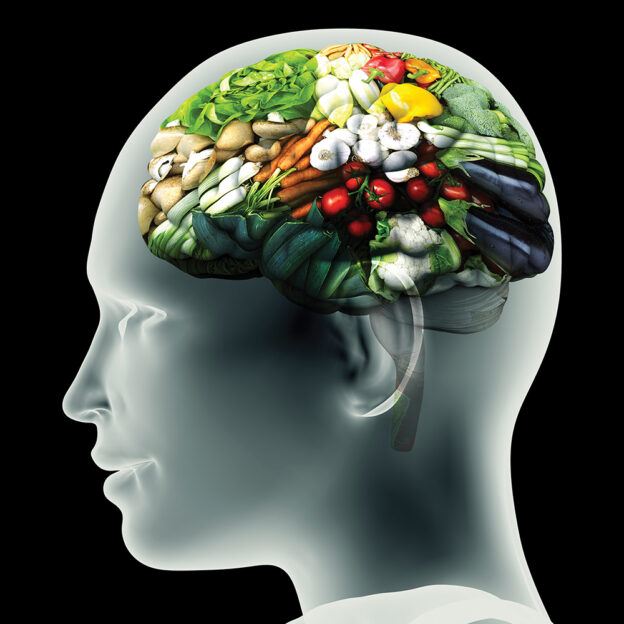What You Inherit, What You Can Control

Your dna is not your destiny. Rather, what has been learned is that genes function more like light switches. Just because a person tests positive for the BRCA mutation, for example, does not mean they will get breast cancer. Our genes can be flipped on or off depending on our exposure to certain environmental factors, including diet, lifestyle, and stress. Researchers in the emerging field of epigenetics (“upon genetics”) have been studying these environmental “fingers” that are responsible for switching genes on and off. You can think of your genome—your complete set of DNA—like billions of Christmas lights running through your body. Epigenetic factors such as poor diet or exposure to carcinogenic toxins are the fingers that can turn a strand of those lights from being expressed, or illuminated, to being silenced, or turned off. Too much or too little exercise; trauma of any kind; chemical stressors from infections, food allergens, and processed foods; environmental toxins such as fluoride and other metals; emotional or financial stress; issues with children, spouses, or loved ones—all of these impact genetic expression. Every thought, every bite, and every lifestyle choice affects genetic regulation. We all have mouths that can smile or frown; it is the particular environment that triggers which demeanor we choose to express.
Our genes can change in response to our environment, and they always have. Just as good kids can “go bad” when exposed to a negative influence, our genes can exert harmful or helpful expressions depending on what factors they are exposed to. A poor diet can damage mitochondria, turning on cancer-promoting oncogenes. Yet a genetically attuned diet (similar to the one humans have eaten for over two million years) can keep these oncogenes silenced and mitochondria healthy. The genetic mutations considered by conventional medicine as the root causes of cancer are, in fact, modifiable by epigenetic factors. Indeed, it is well established that genetics is the cause of only 5–10 percent of cancers, and most of these genes encode proteins that impact mitochondrial respiration. It is mitochondrial damage that causes cancer, not the genes. If the inherited cancer gene does not damage mitochondria, cancer will not occur.
What’s more, genetic health is actually almost entirely contingent upon the food we eat and how it is metabolized by the body. Nutrigenomics, another emerging field, studies the interaction between diet and genes. So far, the findings have been significant. For example, dark leafy greens can affect gene expression through epigenetic modification processes such as methylation. And there is a growing body of evidence that certain dietary compounds—including folate, vitamin B12, tea polyphenols, glucosinolates in cruciferous vegetables, and more—have anticarcinogenic properties because of their relationship to DNA. There is now an undeniable association between diet and genetic health.
Some people choose to undergo “preventive” measures to avoid the development of cancer, such as removing breasts when they test positive for a BRCA gene mutation. While this has surely saved lives, we show that even if an individual tests positive for a scary gene like BRCA1 or a SNP like MTHFR (which we discuss in a moment), with the right diet and other terrain modifications, cancer may not be what ultimately sends them into the casket. However, those who test positive for the BRCA1 gene but are not willing to make the diet and lifestyle changes needed to achieve an optimized terrain increase their likelihood of developing cancer by a lot—85 percent in some cases. Conversely, by focusing on prevention and on participation and engagement in our own health, we can decrease cancer risk by 85 percent. Our approach is all about encouraging participatory medicine through deep nutrition and nontoxic approaches. If we expose ourselves to positive epigenetic factors such as deep nutrition, exercise, good sleep, stress management, and healthy relationships, our genes will express smiles and health, not frowns and disease.
Meet Your Genes
Genetics is the study of genes, genetic variation, and inheritance. A gene is a segment of DNA that is inherited by a child from their parents. DNA is made of molecules arranged in a double helix, a shape that looks similar to a spiral staircase. Each step of the staircase is made of a base pair, a coupling of two out of the four possible nucleobases—the chemicals adenine (A), thymine (T), cytosine (C), and guanine (G). These are sometimes referred to as the genetic alphabet. The particular sequence of the four bases (ATCGTT versus ATCGCT, for instance) on the steps is what provides the instructions—or recipe if you will—for the cell to create the proteins the body needs to function. These proteins can become enzymes, antibodies, hormones, and so forth. The process of translating the genetic information (the recipe) from the DNA code into proteins is a technical process known as genetic expression. Just because a particular gene is encoded for in the DNA, its associated trait or protein will not necessarily be expressed (created). The recipe might be right there in the book, but the cook needs to be activated to make it.
The result can be a mutation. A mutation is a permanent alteration in the DNA sequence, due to either the deletion or substitution of part of the code. (You can think of it as like a typo in a recipe—a tablespoon instead of a teaspoon—which creates a bad-tasting dish, or, in this case, a cancer-promoting gene.)
There are two types of genetic mutations. Germline, or hereditary, mutations are inherited from a parent and are present in every cell of the body throughout a person’s life. Somatic mutations are alterations in DNA that occur after birth. Somatic mutations can, but don’t always, cause cancer. They result from numerous factors, including diet, lifestyle (stress, sleep, exercise), exposure to carcinogens such as cigarette smoke or pesticides, viruses, nutrient deficiencies, mistakes made during DNA replication or cell division, and more. Every time a cell divides, its genes have a certain chance of mutating, so cells that divide more frequently—or are exposed to more mutation-causing toxins—have a greater chance of acquiring mutations. Over ten million billion cell divisions occur over the average human lifetime.
Two of the most famous genes in cancer, BRCA1 and BRCA2, also play central roles in genetic repair and mitochondrial function. When either BRCA1 or BRCA2 is absent as the result of a mutation, DNA repair complexes cannot form. Therefore, cells that are missing BRCA1 or BRCA2 become hypersensitive to damaging agents (such as various chemical carcinogens found in our food and personal care products). Fortunately, many food components are involved in repairing DNA and mitochondrial damage, including those found in cruciferous vegetables. But let’s look at another type of gene mutation that, in addition to the hereditary and somatic mutations already described, also alters gene function. Single-nucleotide polymorphisms, also known as SNPs (pronounced “snips”), are a type of genetic variation that is passed from parent to child. The analysis of an individual’s SNPs is becoming a critical element in personalized medicine.
Making Sense of Single-Nucleotide Polymorphisms
The process called mitosis, or cell division, is when a single cell divides to form two identical cells. The purposes of mitosis are both to grow and to replace worn-out cells. In mitosis, a cell first copies its DNA so that each new cell will have a complete set of genetic instructions. But cells sometimes make mistakes, similar to typos, during this copying process. These mistakes lead to variations in the DNA sequence at particular locations, causing a SNP (or, as some like to say, a “hiccup”). There are an estimated ten million SNPs in the human genome. And while some SNPs seem to have no effect on cell function, others can have profound effects, from changing an individual’s response to certain drugs to raising their susceptibility to environmental factors such as toxins, suppressing their ability to process hormones, affecting the way they metabolize food, and increasing their risk of depression and developing disease. Certain SNPs can also affect the metabolism of fats, alcohol, caffeine, vitamin D, sulfur, and lactose.
An estimated 50 percent of the population has inherited one copy of the infamous MTHFR SNP, which codes for the enzyme methylenetetrahydrofolate reductase (MTHFR). Research suggests that, similar to the BRCA gene, a MTHFR gene mutation increases the risk of breast, colon, and other cancers and should be given equal emphasis to BRCA mutations during evaluation and treatment. Individuals with MTHFR mutations can have a 40–70 percent reduction of normal MTHFR enzyme activity. This slows down methylation processes and the body’s ability to create antioxidants, and impedes detoxification. Here we cover MTHFR’s role in methylation, one of the body’s primary epigenetic modification systems, a critical process used to silence mutated genes that also just so happens to be entirely dependent on nutrition.
The Mechanics of Methylation
DNA methylation is one of several critically important epigenetic processes the body uses to mark or tag genes. These epigenetic markers direct a cell’s transcription machinery to either read a gene or not—to make the recipe or skip it. DNA methylation is when a structure called a methyl group, a unit composed of a single atom of carbon and three hydrogen atoms, binds to a stretch of DNA and either activates it or silences it—kind of like putting a sticker over its mouth. In this way, methylation helps regulate the normal behavior of DNA; without methylation, the transcription of genes would occur without restraint. The process of methylation also impacts immune, neurological, and detoxification systems. Changes in the pattern of DNA methylation have been a consistent finding in cancer cells. Reduced levels of DNA methylation, called hypomethylation, can result in DNA instability, while the overexpression of genes, or hypermethylation, has been associated with the silencing of valuable tumor-suppressor genes.
One of the most important genes in the methylation process is, you guessed it, MTHFR. The MTHFR gene provides instructions for making the enzyme methylenetetrahydrofolate reductase. When foods containing folate (also called folic acid, or vitamin B9) are consumed, the MTHFR enzyme converts the vitamin into an active, bioavailable form called methylfolate. Methylfolate has a complicated role in the DNA methylation process, but, in short, it is an important source of the carbon molecules needed for the creation of methyl groups, the mouth-covering stickers. When dietary consumption of folate is low or a person has an MTHFR mutation, the methylation process can be reduced by 40–70 percent. This hypomethylation in effect gives oncogenes the green light, which can result in the development of cancer. Fortunately, there is a nutritional solution for overcoming a MTHFR SNP and enhancing methylation: increasing consumption of folate-rich foods.
Folate: The Celebrity Methylation Nutrient
While, by definition, all nutrients are vital to overall well-being, there is one standout when it comes to genetic health: folate. Folate is a water-soluble B vitamin, B9, and is essential for numerous genetic processes—as well as for metabolism and the production of red blood cells. Lack of the vitamin during pregnancy can cause neural tube defects in the baby, including spina bifida, which is why pregnant women are encouraged to take folate supplements. Folate is necessary for the formation of the DNA bases adenine and guanine. It is also required for DNA synthesis, cell formation, and regeneration. A lack of folate during DNA replication can increase the risk of mutations. Epidemiological studies have found that folate deficiency is also strongly associated with hypomethylation of DNA, increased risk of breast cancer, and the promotion of cancer in general. Folate is the first of many examples of how important nutrition is to genetic health, and to the body’s terrain in general.
Humans are not capable of synthesizing folate in the body, which means we rely on sufficient levels of it coming from our diet. The top sources of folate (from the Latin word folium, meaning “leaf”) are spinach, endive, bok choy, romaine lettuce, asparagus, mustard and turnip greens, goose and duck liver, and the herb epazote. Epazote has a sharp flavor similar to fennel and was once widely cultivated as a medicinal herb, although many today have never heard of it. Another interesting constituent of epazote is the compound ascaridole, one of the ingredients in an essential oil that, in research studies of sarcomas in mice, has been associated with the inhibition of tumor growth by over 30 percent. If you haven’t ever tried this powerful herb, now is the time! It can be used much like cilantro in Mexican dishes and also makes for a savory soup topping.
When we don’t eat enough folate-rich foods, fatigue sets in, as well as anxiety, an increased risk of miscarriage, thyroid problems, and a condition called folate-deficiency anemia, the decreased production of red blood cells. Folate-rich foods should be incorporated on a daily basis, and supplementation needs to be in the active form methylfolate. Folic acid, the synthetic form of folate, is added to grains and supplements (such as prenatal vitamins), but individuals with a certain MTHFR gene mutation cannot metabolize folic acid. What’s more, an elevated folic acid level has the potential to stimulate pre-existing cancer cells. In general, synthetic forms of vitamins should always be avoided.
Folate has also recently gained attention for its ability to help keep blood levels of homocysteine in check. Homocysteine, an amino acid, is a well-documented marker for cardiovascular disease and, when excessive, is also considered a risk factor for cancer. An estimated 20 percent of the population has a dietary deficiency of folate. Couple that with the 50 percent of people who have an MTHFR mutation and we can see why the Christmas lights of our genome are short-circuiting, oncogenes are running free, and cancer is rampant.
Cancer Is a Disease of Genes Mismatched with Modern Lifestyle
Several genetic mutations caused by the dietary changes that attended the arrival of agriculture now increase our risk of developing cancer, especially those related to the increased consumption of sugar (glucose, fructose, and sucrose). The metabolism of glucose increases the creation of free radicals that can cause DNA mutations and subsequent inflammation. Studies have also found that high glucose levels induce DNA damage and interfere with DNA repair capability. Similarly, a study published in 2011 in the journal Expert Opinion on Therapeutic Targets and titled “Refined Fructose and Cancer” demonstrated that the more fructose a person consumes, the greater the amount of damage done to DNA. Studies on a particular protein known as GLUT (and its relationship to glucose and fructose metabolism) show that it alters both germline and somatic DNA, as well as inducing epigenetic changes and damaging mitochondria. Our genes are screaming at us to stop eating sugar. And not only is the elimination of sugar good for our genes, it is at the heart of the metabolic approach to cancer. Cancer is not a disease of our genes, it is a disease caused by what we are feeding them.
In addition to a reduction in nutritional diversity, agricultural diets are associated with a caloric availability that exceeds growth and energetic requirements. Enter diabetes. How on earth do we expect our ancient genome to adapt to the changes of the past hundred years: high-fructose corn syrup (HFCS), processed grains, refined oils, artificial and synthetic ingredients, and Krispy Kreme doughnuts! Grains, legumes, processed dairy products, and sugar were not part of the human diet until just a mere speck of time ago in the span of human existence, and since they have been introduced our health has declined.
Diet and DNA
Nutrigenetics, nutrigenomics, and nutritional epigenetics are scientific fields that explore, respectively, the ways in which food affects patterns in gene regulation, the relationship between the human genome and nutrition and health, and how our grandparents’ diet affects our health today, among other things. The findings have been stunning. To mention only a few:
Macronutrients and micronutrients in the diet change the activity of enzymes that add methyl groups to DNA.
Certain phytonutrients, such as green tea, have the ability to repair DNA.
Molecules in food affect the kind and number of molecules attached to DNA.
Common dietary chemicals act on the human genome either directly or indirectly and can alter gene expression or structure via several different mechanisms. (For example, intake of the element selenium is considered the major epigenetic switch regulating BRCA mutations.)
Some diet-regulated genes play a role in the onset, incidence, progression, and/or severity of cancer.
To us, the message is clear: Dietary intervention based on knowledge of nutritional requirements, nutritional status, and genotype can and should be used to help prevent or mitigate cancer. Connections among diet, DNA, and disease continue to surface; for example, a diet high in omega-6 fatty acids correlates to forty times more DNA damage than one high in anti-inflammatory omega-3 fatty acids. Many nutrients are considered “chemoprotective” as they can inhibit cancer growth, activate tumor-suppressor genes, and promote apoptosis. Cancer prevention studies have shown that all of the major intracellular signaling pathways, including DNA repair, deregulated in different types of cancer are protected by nutrients. Because genetic variation has not been taken into account when it comes to dietary recommendations, nutrition and health status have largely suffered. Personalized nutrition absolutely needs to be at the core of cancer treatments. Avoiding such DNA-damaging foods as grains, beans, inflammatory fats, and sugar is a surefire way to optimize your genome no matter your cancer history.
Phytonutrients for DNA Repair
Phytonutrients are medically active compounds that are found in plants that are neither vitamin nor mineral. Many phytonutrients have shown promise in preventing DNA damage, enhancing DNA repair, and targeting deficient DNA-repair systems. Two standouts when it comes to genetic health are isothiocyanates and carotenoids. There is a good reason why every single anticancer diet has a common theme: Eat lots of vegetables and fruit. This is because they are the richest sources of the phytonutrient compounds that can repair genetic damage.
A combination of faulty genetics and bad luck—that’s what Western medicine has been telling us is the cause of cancer. But this is far from the truth. Genetics and epigenetics are influenced to a great extent by dietary factors—both positively and negatively. Genetic damage occurs all the time from exposure to toxins, radiation, pesticides, aging, stress, and more, but foods such as eggs, duck liver, organic red bell peppers, spinach, endive, asparagus, mustard greens, turnip greens, and epazote can all help to protect and repair genes from that damage. The good news is that you can change the destiny of your genetic health simply by putting different foods in your shopping cart. It’s that easy, and it doesn’t hurt. It might just taste a little different than what you are used to. ?
Well Being Journal adapted this article from The Metabolic Approach to Cancer: Integrating Deep Nutrition, the Ketogenic Diet, and Nontoxic Bio-Individualized Therapies, copyright 2017 by Nasha Winters and Jess Higgins Kelley, used with permission from Chelsea Green Publishing, White River Junction, Vermont, 802-295-6300; www.chelseagreen.com. Referenced and indexed.
Nasha Winters, ND, LAc, FABNO, is the founder, CEO, and visionary of Optimal Terrain Consulting. She is a nationally board-certified naturopathic doctor, licensed acupuncturist, and fellow of the American Board of Naturopathic Oncology. She lives in Durango, Colorado.
Jess Higgins Kelley, MNT, is the director of the Oncology Nutrition Therapy Certification Program at the Nutrition Therapy Institute in Denver, Colorado. She is the founder and CEO of the metabolic nutrition consulting, education, and research enterprise Remission Nutrition (http://remissionnutrition.com). She lives in Mid Coast Maine.





